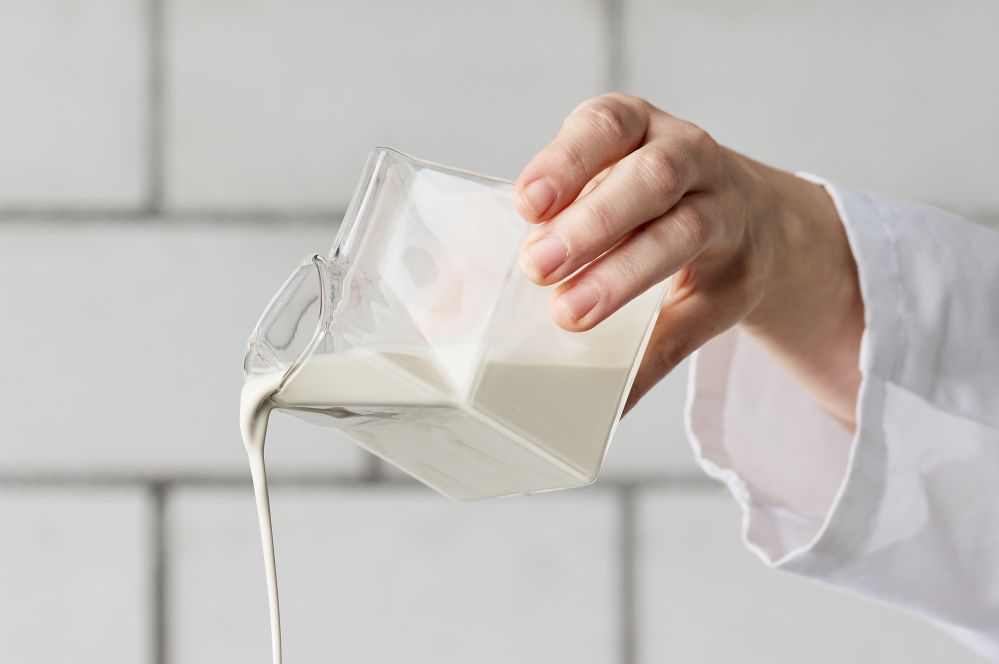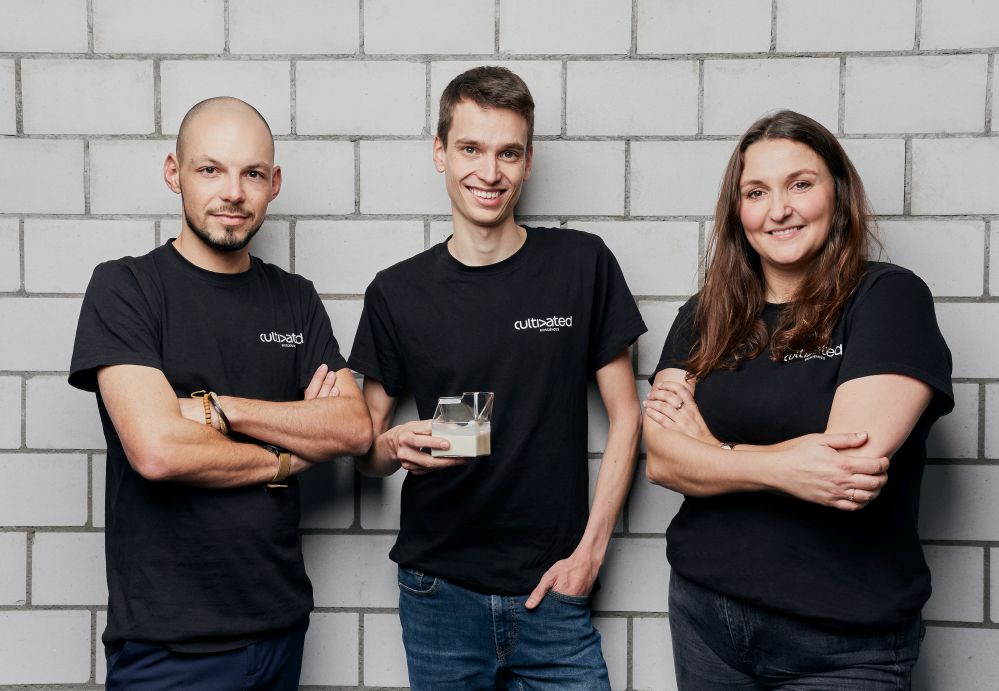Swiss startup Cultivated Biosciences has raised a $5 million seed round to scale up a yeast fermentation platform it claims can dramatically improve the mouthfeel and performance of alt dairy products and help firms achieve cleaner labels.
The round—led by Navus Ventures and supported by Founderful, HackCapital, Lukas Böni (founder of plant-based meat co Planted) Joyful VC, Mandi Ventures, and Zürcher Kantonalbank—will help the Zurich-based company scale up production of its ‘yeast cream’ in preparation for a US launch in 2025, and a European launch in 2026, pending regulatory approvals.
Non GMO oleaginous yeast
Most precision fermentation startups genetically engineer microbes to produce target molecules that are extracted and purified at the end of the fermentation. Cultivated Biosciences, on the other hand, is growing a non GMO “wild type” oleaginous yeast strain that naturally produces high levels of lipids.
There is a multistep extraction process after the yeast is harvested to remove certain unwanted components, but the firm is using the bulk of the biomass in its final product: a neutral-tasting, white-colored ‘yeast cream’ or emulsion containing a mixture of lipids, proteins and fibers. The unused biomass could potentially be valorized as animal feed, chief commercial officer Lucie Rein told AgFunderNews.
“We’re working with large and small players in alternative dairy that are interested in using our ingredient because it mimics the creaminess, functionality, and color of traditional dairy cream, improves texture and stability, replaces additives, and doesn’t affect taste,” said Rein. “It also masks the astringency of plant proteins such as pea protein if you add it to a plant-based milk or creamer, for example, and we can use relatively low inclusion rates to make big improvements in functionality and mouthfeel.”
She added: “We’re patenting the ingredient while the process will remain a trade secret, but the extraction is where our magic lies. A lot of the people ask, ‘What are you mixing the oil with [to make an emulsion]?’ But we’re not adding anything. The functionality in the yeast cream comes from the combination of the protein, fiber and fats and the natural emulsion structure, which we preserve through the extraction process.”

Labeling, regulatory, scale up
Labeling is a work in progress, said Rein, who added that Cultivated Biosciences will file safety dossiers with the US Food and Drug Administration (a Generally Recognized as Safe notification) and the European Food Safety Authority (a Novel Food application) this year.
The company has so far proved the technology at the 1,500-liter bioreactor scale with a co-manufacturer with the capacity to scale up, said Rein, who is working with a variety of potential customers interested in testing the yeast cream in dairy-free coffee creamers, milks, yogurts and ice cream.
“Creamers are particularly interesting as our yeast cream works well in a hot acidic product such as coffee,” said Rein. “Current plant-based creamers can contain whiteners [such as titanium dioxide, which is permitted in the US but many firms seek to replace] and additives [gums, stabilizers, emulsifiers], whereas we would just need to add sugar and flavors. We can also produce the product in a powdered form, which would open up a wider range of product applications.”
Alt protein investment landscape
While it’s a challenging time to raise money, Cultivated Biosciences’ economics stack up well versus some precision fermentation players, while some investors are also more inclined to invest in B2B ingredients companies rather than startups attempting to build consumer brands, claimed Rein.
“We’ve found that some investors prefer to invest in technology than in marketing. They also like that we can produce a variety of products from this platform.”
That said, investors are expecting startups to reach milestones at the seed stage that “three years ago, they would not expect you to reach until after the seed round,” claimed Rein, who joined Cultivated Biosciences as a late cofounder in 2023, around 18 months after Tomas Turner and Dimitri Zogg incorporated the company.
“In the current climate, investors also want more evidence of the feasibility and scalability of the technology and evidence of customer interest at this funding stage,” she added.
Fats from fermentation
Cultivated Biosciences is one of a growing number of startups using fermentation to make tailored fats including Nourish Ingredients, Yali Bio, Checkerspot, Melt&Marble, ÄIO, c16 Bio, Circe, Seminal Bio, NoPalm Ingredients, Zero Acre Farms and Clean Food Group.
Most of these players except Cultivated Biosciences are extracting and isolating the fat. However, Nourish’s first commercial product, Tastilux, is a non-GMO fungal biomass (the firm is not extracting and purifying the lipid fraction) that is designed to be used at low inclusion rates in alt meat to deliver an “authentic animal taste, aroma and natural cooking reactions.” Nourish is separately working on more dairy-like fats made via precision fermentation using genetically engineered microbes.
Other startups are making cell-cultured fat by growing animal fat cells in a bioreactor (Hoxton Farms, Mission Barns, Believer Meats); while some are playing around with the structure of plant oils through emulsions (Lypid), oleogels (Shiru, Motif FoodWorks), and oil structuring technology (Fattastic).





